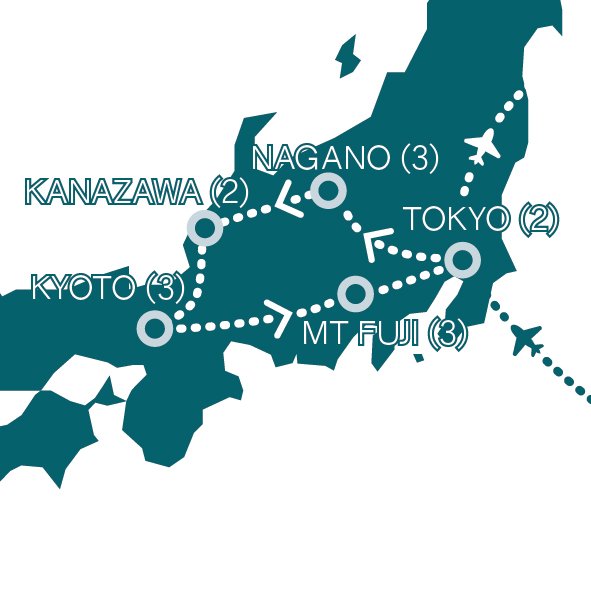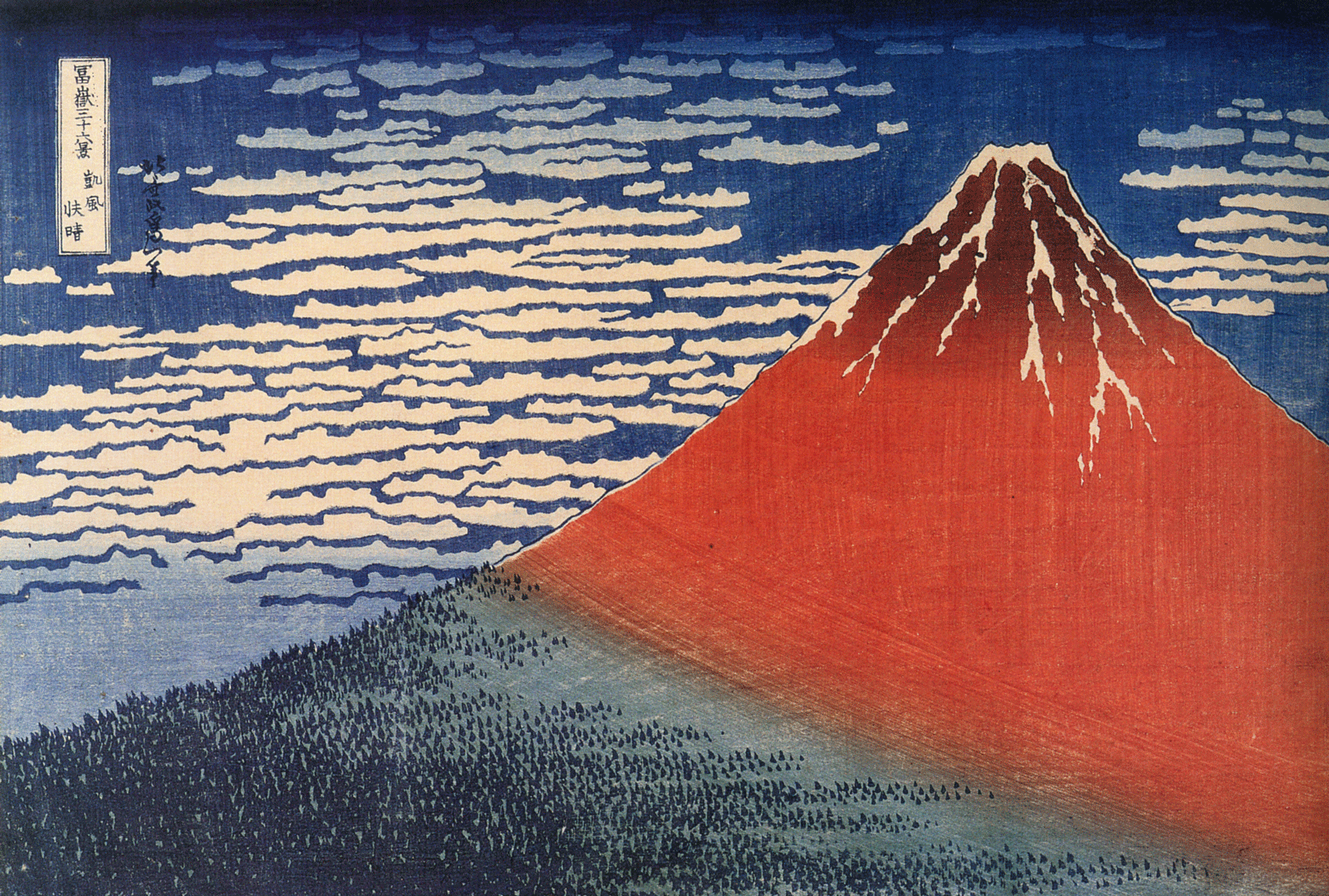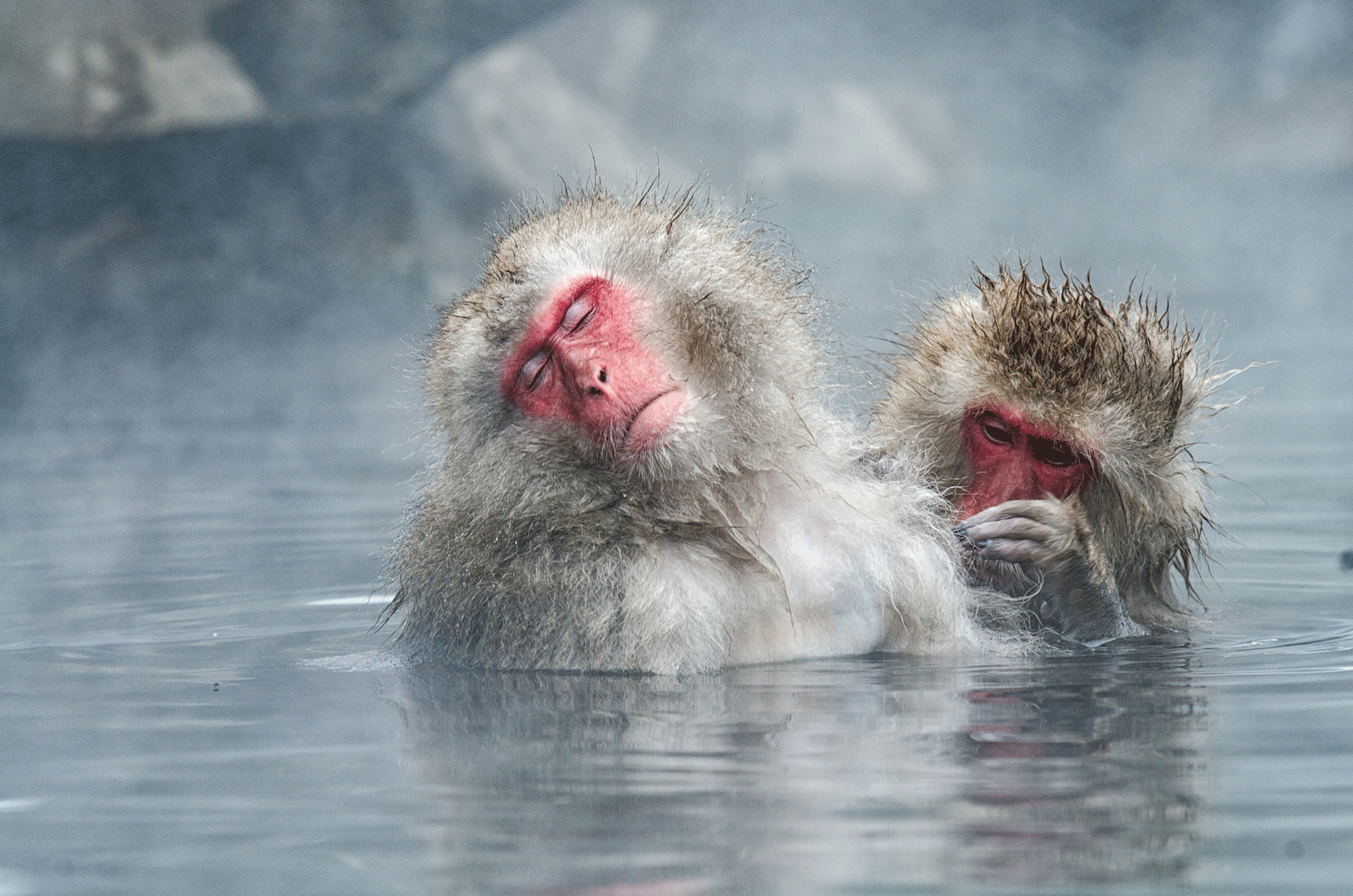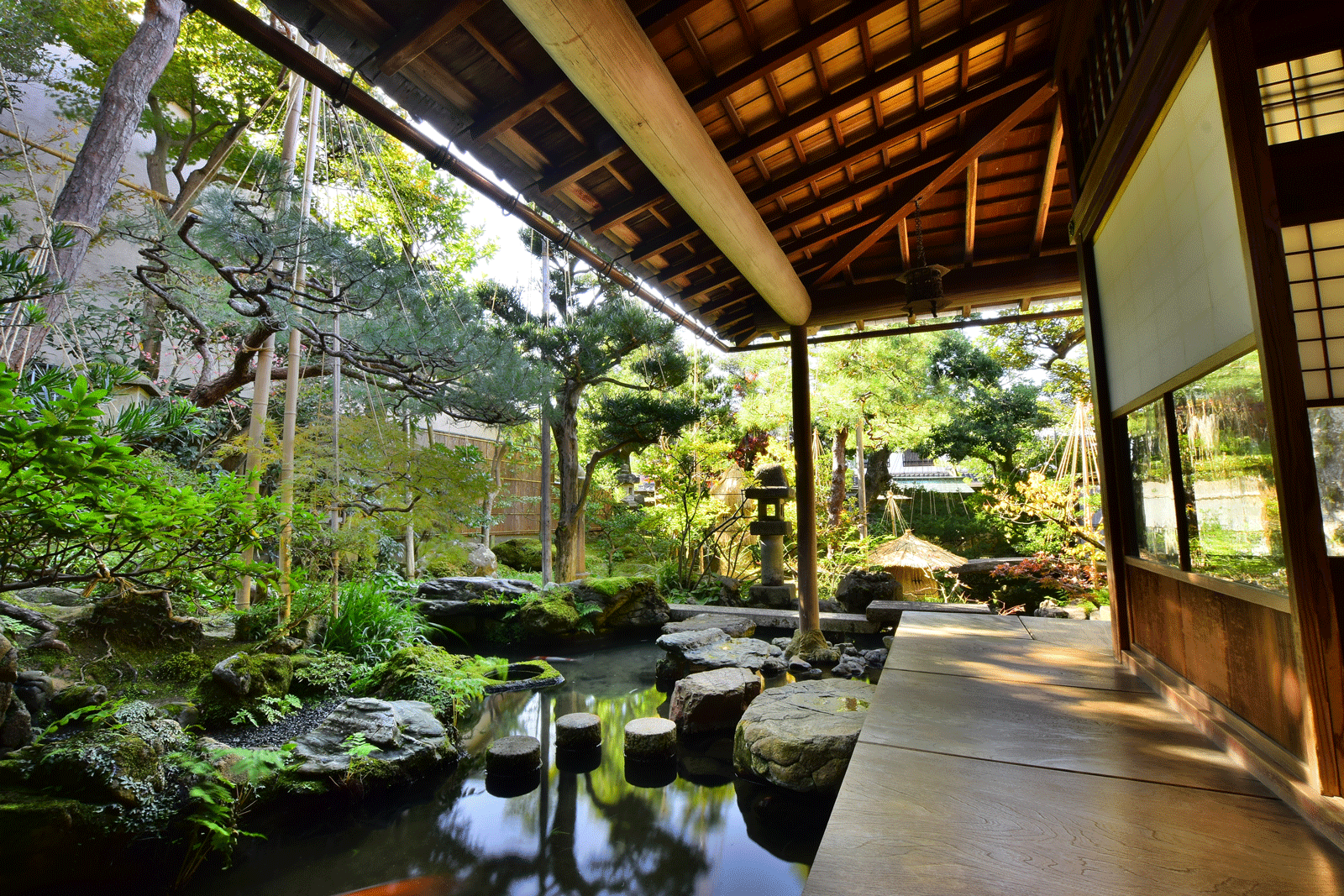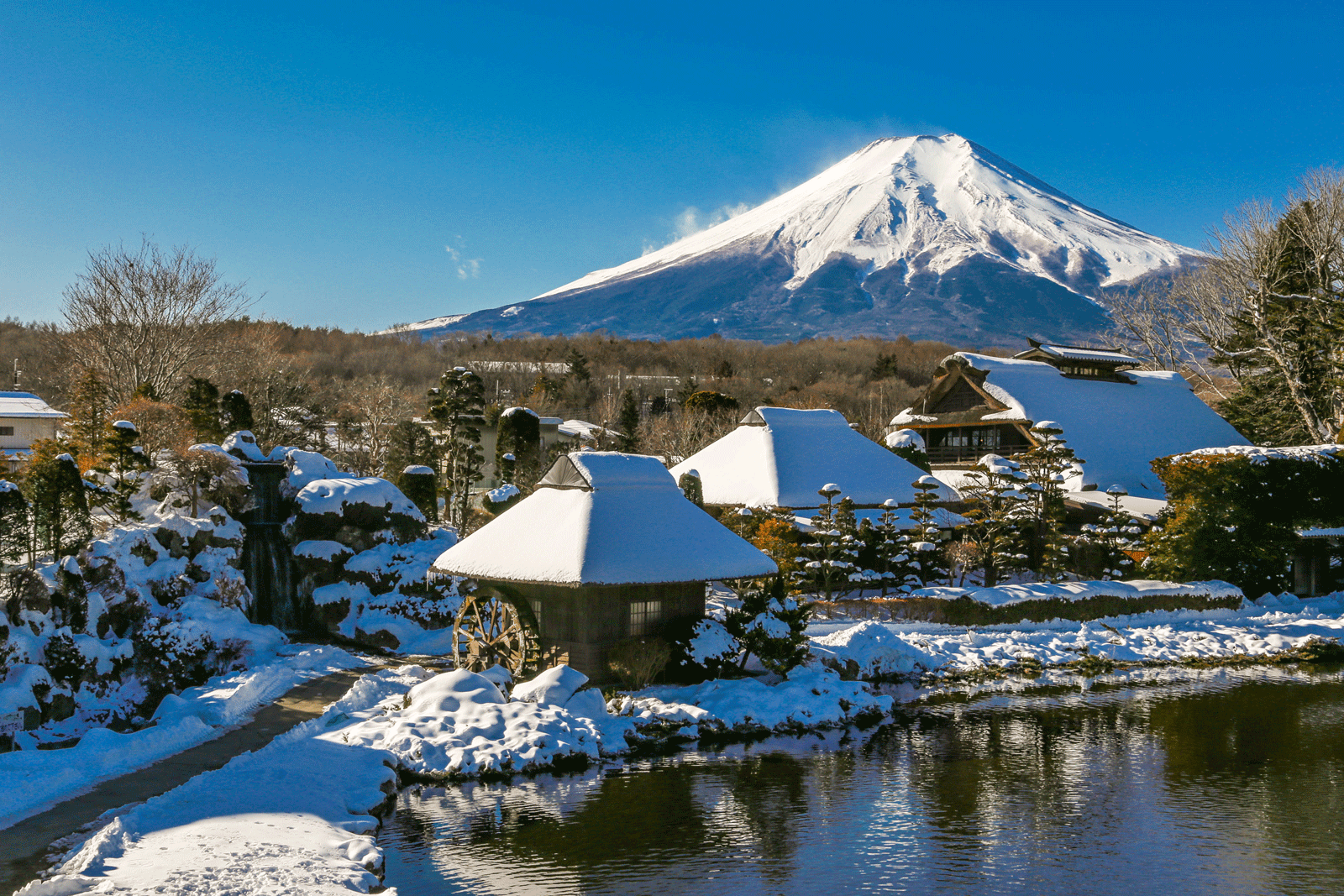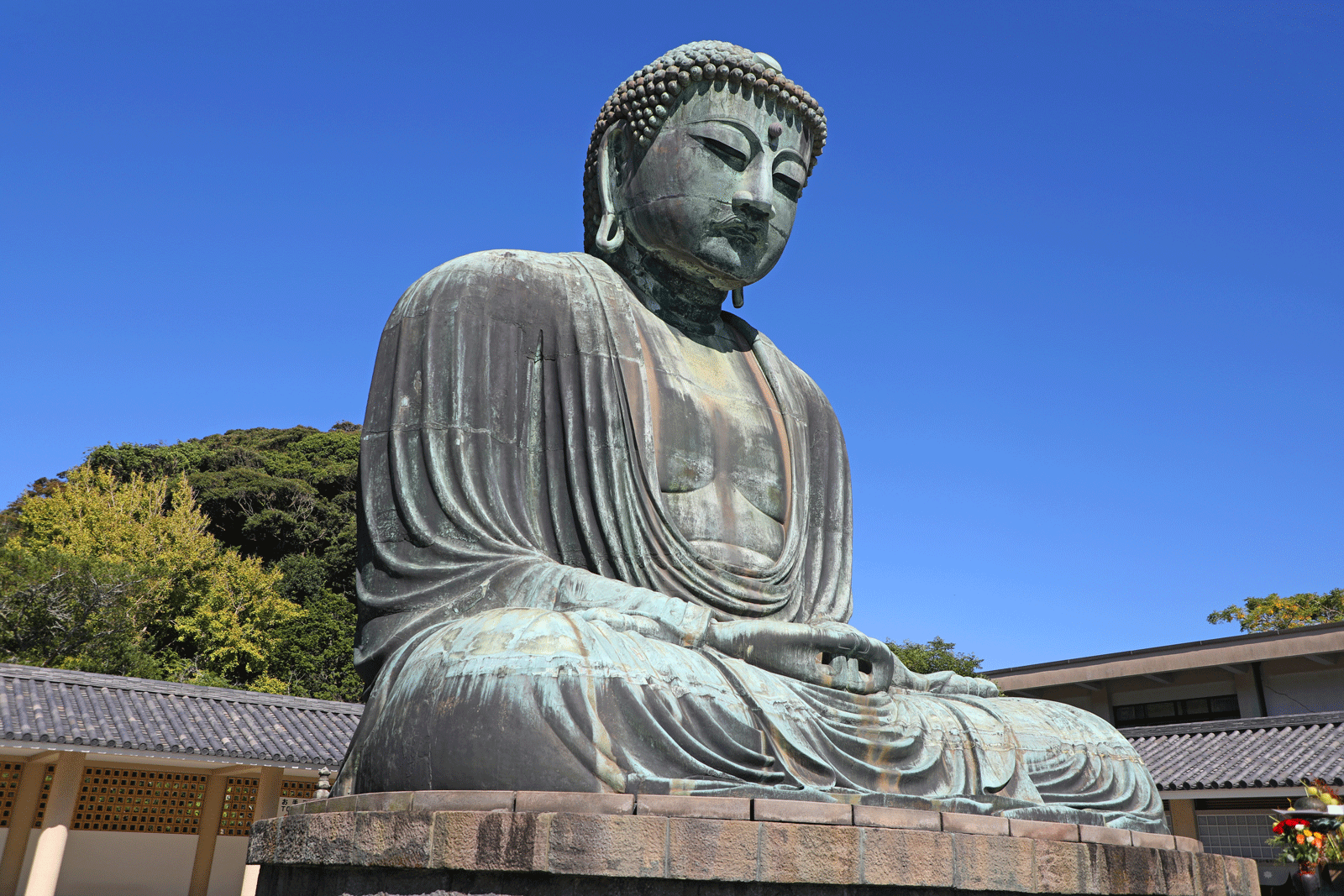
winter in japan
16-29 january 2025
DR kathleen olive
Encounter a different facet of Japan during winter, exploring its small mountain towns, historic villas and gardens, exceptional regional galleries and the overwhelming beauty of Mount Fuji
OVERVIEW
Most travellers consider spring or autumn as the ideal time to travel to Japan, yet winter offers many special delights for the off-season traveller. These benefits include soaking up the serenity of crowd-free temples and gardens in Kyoto, to near-empty galleries and museums in major cities. But it’s also easier to uncover the spirit of Old Edo as Tokyo reveals its calmer side in January, Mount Fuji is mostly easily admired in the clean and crisp air of winter, and Kanazawa – with one of the country’s top-rated all-season gardens – boasts abundant seasonal seafood at this time.
This new itinerary commences in Tokyo, where we explore the world of woodblock master Hokusai in Asakusa, an area synonymous with the vibrant Edo Period. We then board a bullet train to Nagano in the Japanese Alps, where snow monkeys ward off the chill by enjoying an outdoor bath and the first Buddhist statue bought to Japan is enshrined at Zenkō-ji Temple. We visit the Hokusai Museum in Obuse before travelling to Kanazawa to see how the samurai lived and experience the magic of Kenrokuen Garden in winter.
Continuing to Kyoto, we head to the hills to enjoy fine art and fine whisky before exploring the city’s lesser-known temples and museums. Finally, we discover the Fuji Five Lakes region, a stunningly picturesque district at the foot of the mountain, known for its hot springs and extraordinary private collections of fine arts and textiles. The tour concludes with a stop at the Great Buddha in ancient Kamakura, and is rounded out by select fine dining and the expertise of your tour leader, Dr Kathleen Olive.
TOUR LEADER
Dr Kathleen Olive is one of Australia’s best-known cultural tour leaders, with over fifteen years’ experience leading tours to Western Europe, North America and Japan.
While Kathleen is particularly known for her expertise in Italy, she has recently pursued a longstanding interest in Japanese art, aesthetics and design. Since 2017 she has led nine sold-out tours to Japan and presented regular lectures on Japanese art, history and gardens for ArtsNational Australia.
Details
DATES:
16-29 January 2025
ITINERARY:
Tokyo – 2 nights
Nagano – 3 nights
Kanazawa – 2 nights
Kyoto – 3 nights
Fuji Five Lakes – 3 nights
PRICE:
$12,550pp twinshare
SINGLE SUPPLEMENT:
$1,650 for sole use of a double room
DEPOSIT:
$1,500pp at the time of booking
FITNESS:
Above moderate: train travel; uneven ground at nature reserves; shoes on and off at various sites; unfamiliar diet
GETTING THERE:
The tour starts in the lobby of our hotel in Tokyo at 4.00pm on Thursday 16 January
GROUP SIZE:
Max. 16 people in a group
-
Step back into the world of Old Edo, following in the footsteps of woodblock print master Hokusai
Ascend to Nagano, the ‘roof of Japan’, and encounter snow monkeys bathing in hot springs, the charming mountain village of Obuse and historic Zenkō-ji Temple
Survey Kenroku-en Garden and wander through samurai villas and tea houses in Kanazawa’s geisha district
Enjoy the different faces of Kyoto, from whiskey tastings to unique art collections, distinctive Zen temples and the rituals of the tea ceremony
Admire iconic Mount Fuji and its infuence on Japanese history, culture and fine arts
Contemplate the Great Buddha of Kamakura, serenely situated near the waterfront and a National Treasure
-
THURSDAY 16 JANUARY – ARRIVAL IN TOKYO (D)
An arrival transfer from Haneda or Narita airport is included for all participants; contact us for further information. Meet your tour leader Dr Kathleen Olive and fellow travellers at 4.00pm in the lobby of our hotel in Tokyo for an orientation stroll around Asakusa, including a visit to the colourful Sensō-ji Temple. We enjoy a welcome dinner and admire panoramic views over Tokyo from the Tokyo Skytree, Japan’s tallest structure. Overnight Tokyo.
FRIDAY 17 JANUARY – OLD EDO (B, L)
Today we focus on Tokyo’s oldest neighbourhoods along the Sumida River. During the Edo period the river inspired many literary and artistic masters, drawn to the drinking houses and establishments of the night that populated its banks. The poet Bashō lived in this ‘Floating World’, as did many courtesans and the woodblock designer Katsushika Hokusai. In Ryogoku, we learn of the history and traditions of Sumo at the Sumo Museum in the Kokugikan stadium. After a traditional lunch of chanko nabe, a hearty hotpot of meat, seafood and vegetables that is the staple meal of sumo wrestlers, we visit the Sumida Hokusai Museum. The museum’s extraordinary design by the SANAA firm, the architects behind the Sydney Modern Project, showcases the life and works of the revered artist and his lifelong relationship with old Edo and the Sumida River. We return to Asakusa by subway, with an option to visit Kappabashi or ‘kitchen town’, lined with stores selling utensils, Japanese knives and the plastic and wax food samples displayed in restaurant windows. This evening is at leisure. Overnight Tokyo.
SATURDAY 18 JANUARY – TO NAGANO (B, D)
We check out of the hotel this morning and travel by Shinkansen to Nagano. Please note that today you travel with your carry-on luggage only; your large suitcase will be shipped to our Nagano hotel by truck and arrive tomorrow, so please pack clothing, toiletries and supplies (including medication) for an overnight night stay without your main luggage. There is time to purchase a bento box and snacks for lunch in Tokyo Station before boarding the train. Arriving in Nagano, we transfer to Zenkō-ji Temple, a culturally important and much-loved complex due to its lack of affiliation with any Buddhist sect and its broad acceptance of all, regardless of faith. The temple enshrines an ancient statue of the Zenkōji Nyarai Amida Buddha, brought to Japan from the Korean Peninsula in 552 CE. We continue to the hotel and check in before dinner in a local restaurant. Overnight Nagano.
SUNDAY 19 JANUARY – SNOW MONKEYS & HOKUSAI (B, L)
This morning we head to Jigokudani Monkey Park, where wild Japanese Macaques luxuriate in the warm waters of natural hot springs, all set against a snowy mountain backdrop. Afterwards we continue to the small village of Obuse and enjoy a lunch featuring the local seasonal speciality of chestnuts. Hokusai also spent part of his later years here, under the patronage of a wealthy merchant, Takai Kozan. A collection of works can be seen during our visits to the Hokusai and adjacent Kozan Takai Memorial Museums. We experience Obuse’s vibrant tradition of sake brewing with a sake tasting at a small traditional Edo period brewery before free time to wander through the town. Returning to Nagano, the evening is at leisure. Overnight Nagano.
MONDAY 20 JANUARY – ART IN NAGANO (B)
The morning commences with a visit to the Nagano Prefectural Art Museum. The museum stages rotating exhibitions of works by artists with ties to the area, as well as landscapes depicting the beautiful local scenery. Built as an annexe to the museum, the eponymous Higashiyama Kaii Museum embodies this artist’s love of the Shimane region through his Nihonga-style landscapes displayed in the gallery. In 1998 Nagano hosted the Winter Olympics, so before returning to the hotel we drive past several venues such as the White Ring, Big Hat and Olympic Stadium, where the Olympic Cauldron stands as a monument to this legacy. The afternoon and evening are at leisure. Overnight Nagano.
TUESDAY 21 JANUARY – TO KANAZAWA (B, D)
We check out of the hotel this morning and travel by Shinkansen with carry-on luggage only, for a two-night stay in Kanazawa. (We will be reunited with our large suitcases only on arrival in Kyoto.) Upon arrival we transfer to the elegant Edo Period Seisonkaku Villa, built for the mother of a Maeda clan feudal lord. The villa is adjacent to Kenrokuen Garden and features a viewing deck with a roof designed to offer uninterrupted views over the garden. Entering directly from the villa, the symmetry of Kenrokuen Garden’s pine trees, protected from collapsing under the weight of the snow by yukitsuri or straw ropes, gives a unique beauty to the garden in winter. After checking in to our hotel we enjoy a traditional Japanese Kaiseki dinner. Overnight Kanazawa.
WEDNESDAY 22 JANUARY – SAMURAI, ZEN & MODERN ART (B)
As the seat of the powerful Maeda clan, Kanazawa became one of the most important castle towns in feudal Japan, with a large population of samurai to defend the interests of the daimyo. Today, we explore the Nagamichi District where the middle to high-ranking samurai and their families lived. Here, the sixteenth-century Nomura Samurai House and Garden has been faithfully preserved, with elegantly carved cypress panels (ranma), painted screen doors (fusuma) and a full suit of samurai armour. We also stroll past the well-preserved traditional wooden tea houses of the Higashi Chaya District, where Geisha entertain wealthy patrons and explore the shops and cafes lining the central street and, after free time for lunch, visit the D.T Suzuki Museum. Its stunning and contemplative design complements the philosophy of a scholar who is famed for introducing the West to Zen Buddhism. We continue on to explore the exhibitions and modern art installations on display at the renowned 21st Century Museum of Contemporary Art. Returning to the hotel the evening is at leisure. Overnight Kanazawa.
THURSDAY 23 JANUARY – TO KYOTO (B)
This morning, after checking out, we depart by local train for Kyoto. On arrival we transfer to Sanjūsangen-dō, a Buddhist temple founded in the twelfth century and today known for its thousands of statues of life-sized gilded wooden Buddhas, Kannon (goddess of mercy), bodhisattvas and other designated National Treasures. After checking into the hotel there is an optional walk through Gion in Kyoto’s geisha district. This evening is at leisure. Overnight Kyoto.
FRIDAY 24 JANUARY – ŌYAMAZAKI (B, L)
Today we travel a short distance to the town of Ōyamazaki, in the hills surrounding Kyoto. We survey the diverse private collection held by the Asahi Brewing Company at the Ōyamazaki Villa Museum of Art. The 1910-era villa and garden in a British style houses a collection of Japanese Mingei ceramics by Kanjirō Kawaii and Bernard Leach, while the Tadao Ando-designed underground annexe (known as the ‘Jewelry Box’) exhibits one of Claude Monet’s water lily series. Access to the pristine waters derived from the region is a key factor in the distilling process for the award-winning Yamazaki whisky produced here. We enjoy a tour and tasting at the Suntory Yamazaki Whisky Distillery before returning to Kyoto. This evening at leisure. Overnight Kyoto.
SATURDAY 25 JANUARY – TEMPLES & TEA (B, L)
As one of Japan’s most recognisable landmarks, Kinkaku-ji is often crowded, attracting an overwhelming number of visitors. Our visit in January is timed for a more relaxed encounter, to enjoy the famous Temple of the Golden Pavilion and the carefully-designed garden, hopefully dusted with snow. Our Zen experience continues at Daitoku-ji, with a delicious Buddhist lunch (shojin ryori), a feast of many small dishes utilising seasonal ingredients. An important Zen complex, Daitoku-ji’s monasteries further exemplify ‘dry landscape’ Zen gardens, along with ink-wash screens and hanging scrolls. The temple was instrumental in the development of tea ceremony under Zen master Sen no Rikyū. This afternoon we participate in a tea ceremony and witness the intricate detail and spirituality designed to calm the mind from worldly distractions. Returning to the hotel the evening is at leisure. Overnight Kyoto.
SUNDAY 26 JANUARY – TO MOUNT FUJI (B, D)
We check out of the hotel this morning and travel by Shinkansen to Shizuoka, before transferring to the Fuji Five Lakes area surrounding Mount Fuji. Our introduction to the revered mountain commences at the Fuji-san World Heritage Centre, with a mix of tradition and technology – from displays of artwork and a 15-metre model of Fuji, to experiencing the climb through virtual reality. Dinner is in the hotel this evening, with the option of taking a relaxing soak in the hotel onsen. Overnight Fuji Five Lakes.
MONDAY 27 JANUARY – SCENES OF MOUNT FUJI (B)
Today we discover the lost technique of tsujigahana silk dyeing, revived by artisan Itchiku Kubota and used to decorate elaborate kimono in the Muromachi period. The Itchiku Kubota Art Museum, designed by the artist, explores themes of nature and the seasons in a collection of exquisitely crafted kimono that includes Kubota’s masterful ‘Symphony of Light’: an ambitious panorama of 80 crafted kimono that depict Mount Fuji. Departing the museum, a boat cruise on Lake Kawaguchi-ko offers views of Fuji-san reflected upon the lake. Following a lunch of the local speciality of warming hotoo (noodles in a flavoursome broth), we experience Mount Fuji in its various guises, with works from a collective of artists, including ukiyo-e master Utagawa Hiroshige, at the Fujiyama Museum. Returning to the hotel, the evening is at leisure. Overnight Fuji Five Lakes.
TUESDAY 28 JANUARY – ANCIENT FUJI-SAN (B, D)
Worshipped since ancient times and regarded as sacred to the Asama Buddhist faith, the deity of volcanoes, and Mount Fuji in particular, boasts approximately 1,300 shrines. Fujiyoshida Sengen Shrine previously served as the common starting point for pilgrims ascending the mountain. We approach the shrine through dense old-growth forest along a path lined with stone lanterns and shaded by tall cedar trees, leading to the main hall and stage used during the fire festival that marks the end of the annual climbing season. We continue to Oshino Hakkai (eight seas), a small village of traditional thatched-roof farmhouses set amongst ponds fed by snow melt from Mount Fuji. The clear water of the eight ponds, revered by locals, reflects mirror-like views of the mountain. An open-air farmhouse museum displays farming tools, household items and samurai weapons. The afternoon is at leisure before we gather for a dinner in a local restaurant. Overnight Fuji Five Lakes.
WEDNESDAY 29 JANUARY – HAKONE, KAMAKURA & DEPARTURE (B, L)
After check-out this morning we head to the Hakone Open Air Museum, which uses the concept of a Japanese ‘borrowed garden’ to create a sculpture museum with Japanese and international works interacting in harmony with the surrounding valleys and mountains. After a Western-style farewell lunch, we conclude our journey at the coastal town of Kamakura. Here the Great Buddha of Kamakura, originally cast in bronze in 1152 CE and depicting the Amida Buddha, sits serenely in the open air. Our coach continues to Haneda international airport, arriving in time for late evening flights to Australia. Our travel partner Mary Rossi Travel will be pleased to assist with onward travel arrangements, including comprehensive international travel insurance.
-
Asakusa View Hotel Annex 4*, Tokyo (2 nights)
https://www.viewhotels.jp/asakusa-annex/
Hotel Metropolitan Nagano 4*, Nagano (3 nights)
https://nagano.metropolitan.jp/
Kanazawa Tokyu Hotel 4*, Kanazawa (2 nights)
https://www.tokyuhotels.co.jp/kanazawa-h/index.htm
The Royal Park Hotel Kyoto Sanjo 4*, Kyoto (3 nights)
https://www.royalparkhotels.co.jp/the/kyotosanjo/
Fuji Marriott Hotel 4*, Lake Yamanaka (3 nights)
https://www.marriott.com/en-us/hotels/mmjfj-fuji-marriott-hotel-lake-yamanaka/
NB: hotels of a similar standard may be substituted. For historical reasons, true double-bedded rooms for dual occupancy are rare in Japan; instead, the norm is two generous twin-beds joined together (a so-called “Hollywood twin”). -
13 nights’ accommodation at 4* hotels
All breakfasts and 11 lunches or dinners
All ground transport, including Shinkansen and luggage transfer, guided tours and entrance fees to sites as mentioned in the itinerary, and tipping
Expertise of and commentary by an Australian tour leader throughout
Assistance of a Japanese-speaking national guide throughout
Access to a set of lectures on Japan’s art and history
-
A $1,500pp deposit is required at the time of booking to confirm your place on this tour.
We’ll invoice you for the balance due on 02 November 2024.
-
When you book on one of tours, we ask you to accept our terms and conditions.
Book Your Place
A deposit of $1,500pp is required at the time of booking to hold your place on this tour.
Need time to confirm your plans?
You can hold a place with no obligation for 7 days while you check your other arrangements
Questions?
Get in touch with us on (02) 8599 4201 or by email


